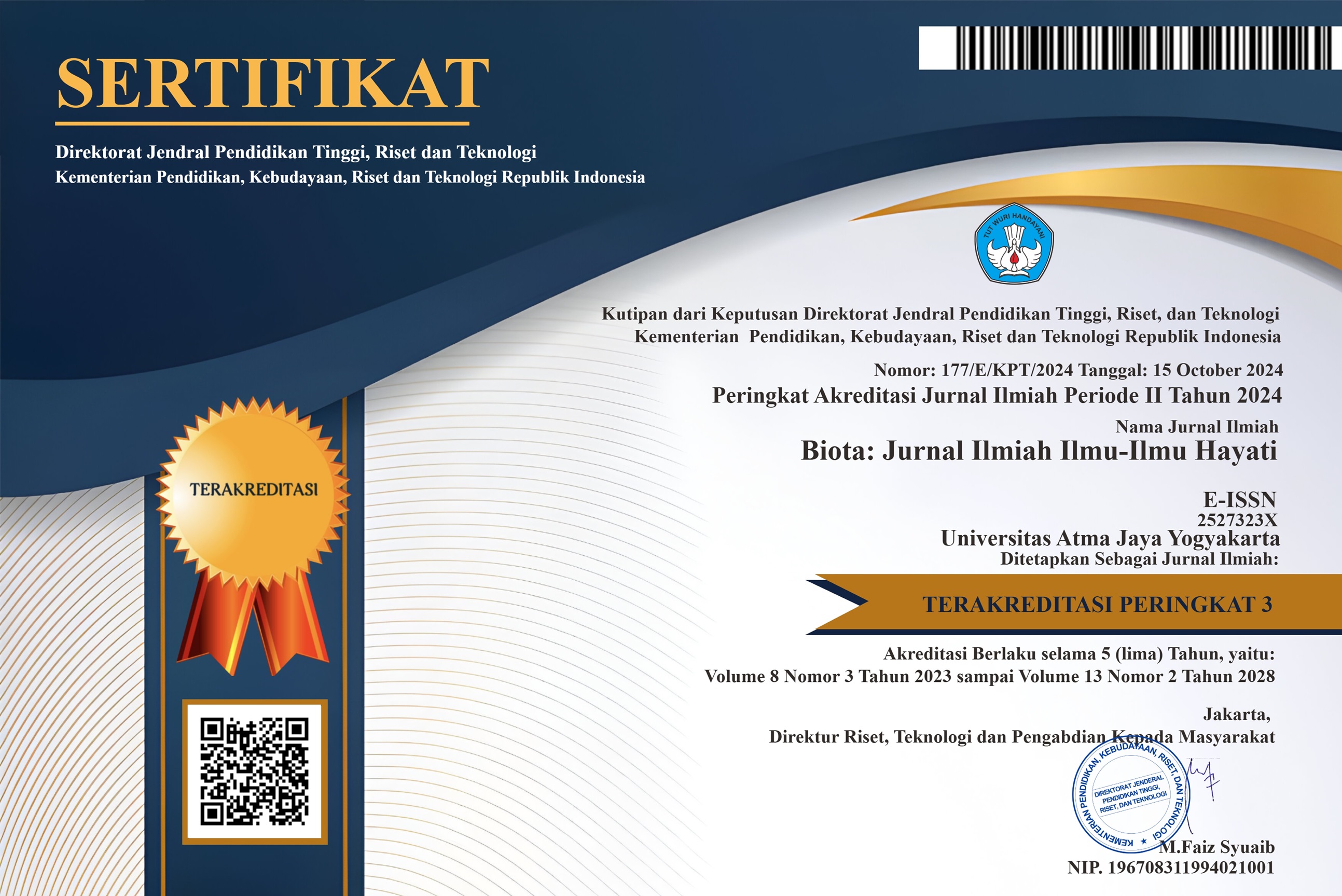Producing the Greatest Good for Greatest Numbers-Implementation of Utilitarianism Principle: The Case Study of Producing Recombinant Protein of JDV
DOI:
https://doi.org/10.24002/biota.v15i2.2729Keywords:
Utilitarianism principle, recombinant vaccine, Jembrana disease, Bali cattleAbstract
Advanced technology in molecular biology often uses microorganism, consequently, researcher should have a responsibility in producing of laboratory products safely both for human and their environment. This presentation was intended (1) to report recombinant protein research in the Jembrana Disease Virus (JDV); (2) to identify relevancy of the ethics towards the research of recombinant protein and (3) to discuss relationship of utilitarianism principle with the development of the recombinant protein. The Jembrana disease is an infectious virus caused by a virus classified as retrovirus of Retrovidae family. The disease only attacks Bali cattle (Bos javanicus) that caused about 20% mortality rate. Up to present, crude vaccine from lymph organ of acute infected Bali cattle is often used for vaccination. Development of the Jembrana vaccine was attempted to increase the availability of qualified Jembrana vaccine by recombinant DNA approaches subsequently could be used as vaccine substances. This article was presented with much bioethics issues in associated with recombinant protein research and other examples of related research which use micro-organism in their investigation. It is expected that bioethics could be a restrain for researchers who deal with advanced technology in their investigation.Downloads
Published
01-06-2011
How to Cite
Margawati, E. T. (2011). Producing the Greatest Good for Greatest Numbers-Implementation of Utilitarianism Principle: The Case Study of Producing Recombinant Protein of JDV. Biota : Jurnal Ilmiah Ilmu-Ilmu Hayati, 15(2), 301–307. https://doi.org/10.24002/biota.v15i2.2729
Issue
Section
Articles
License
Authors who publish with Biota : Jurnal Ilmiah Ilmu-Ilmu Hayati agree to the following terms:
- Authors retain copyright and grant the Biota : Jurnal Ilmiah Ilmu-Ilmu Hayati right of first publication. Licensed under a Creative Commons Attribution-NonCommercial 4.0 International License that allows others to share the work with an acknowledgment of the work's authorship and initial publication in this journal.
- Authors are able to enter into separate, additional contractual arrangements for the non-exclusive distribution of the journal's published version of the work (e.g., post it to an institutional repository or publish it in a book), with an acknowledgment of its initial publication in Biota : Jurnal Ilmiah Ilmu-Ilmu Hayati, and as long as Author is not used for commercial purposes.












